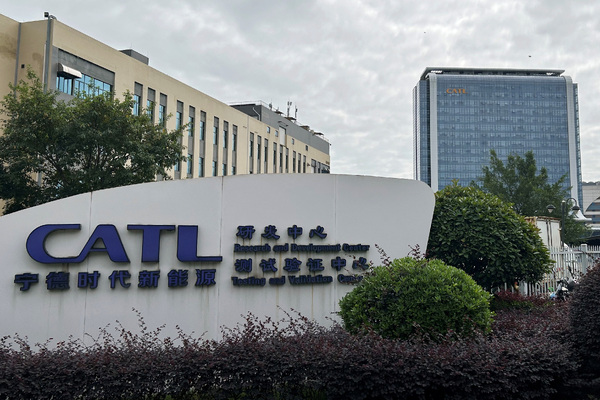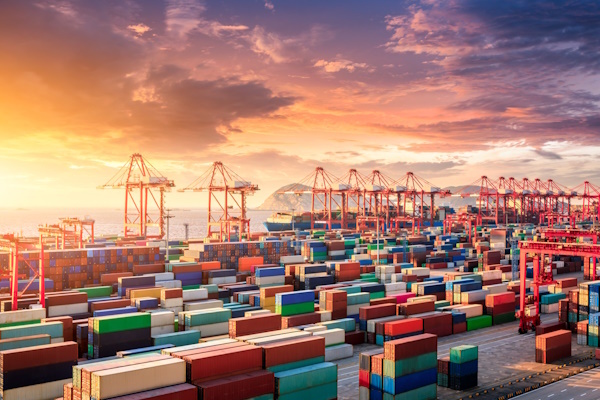AI and supply chain resilience
Jeremy Swinfen Green explores how artificial intelligence can enhance the resilience of supply chains

In today’s globalised economy, supply chain resilience has never been more critical. The past few years have laid bare the vulnerabilities inherent in even the most carefully managed supply chains. From the Covid-19 pandemic to natural disasters such as the 2022 heatwaves that drained water levels in the Rhine and the Yangtze rivers, and to geopolitical tensions in regions like the Gulf, disruptions have tested the mettle of businesses worldwide.
Amid these challenges, artificial intelligence (AI) emerges as a transformative tool for supply chains, not just for optimising efficiency but also for fortifying their resilience.
Historically, strategies to build supply chain resilience have focused on diversifying suppliers, developing alternate routes and fostering better communication. While these remain essential, the integration of AI offers a profound shift in how businesses can plan for and respond to disruptions. The technology’s capacity to process vast datasets, identify patterns and make rapid decisions equips organisations with the agility needed in an unpredictable world.
Supply chain planning
At its core, AI provides an unparalleled ability to enhance the efficiency of supply chain planning. One of its most powerful applications lies in demand forecasting. Through machine learning models, AI analyses historical sales data, market trends and external variables such as holidays or economic shifts, to predict demand fluctuations with remarkable precision.
This capability is further augmented by scenario planning, where AI simulations evaluate the likely impact of different potential demand patterns and find the best responses to the most likely disruptions. In scenario planning, AI can help organisations:
- Develop scenarios: create multiple scenarios that could happen in the future
- Analyse outcomes: determine the best, worst and base-case outcomes for each scenario
- Develop plans: create plans for each scenario to help the business respond to potential events
Businesses can use this information to prepare for surges or downturns, ensuring that their operations are capable of responding to a wide range of possible scenarios.
Another area where AI excels is inventory optimisation. Traditional inventory management often struggles with the balance between overstocking and stockouts, which can lead to unnecessary costs or lost sales. Smart inventory management tools powered by AI mitigate these issues by predicting inventory needs with precision.
Automated replenishment systems take this a step further by streamlining the reordering process, using real-time (as opposed to historical) demand forecasts and stock levels. The result is a leaner, more cost-effective approach that reduces waste and enables the organisation to build plans for coping with market fluctuations.
Effective management of logistics
While planning is vital, effective supply chain management is equally important. AI’s contributions here are transformative, particularly in logistics and route optimisation. Dynamic routing adjusts delivery routes in real time, accounting for variables such as traffic, weather conditions and cost factors. This capability not only ensures timely deliveries but also reduces fuel consumption and environmental impact. Fleet management tools further enhance this by monitoring performance and ensuring the efficient operation of transportation networks, for instance through predictive maintenance.
Real-time visibility is another cornerstone of robust supply chain management. AI achieves this through the integration of internet of things (IoT) devices and sensors, which provide continuous data on inventory, shipments and manufacturing processes. This data feeds into AI-powered dashboards, offering a comprehensive, real-time view of the entire supply chain. Decision-makers can swiftly identify potential bottlenecks and respond proactively, ensuring that minor issues do not escalate into major disruptions.
Supplier and partner collaboration is another domain where AI proves invaluable. By evaluating supplier reliability and identifying alternative options, AI helps businesses mitigate the risks associated with single points of failure. Blockchain technology also has a part to play in supporting AI, enabling manufacturers and retailers to verify the authenticity of products, track items from origin to destination and ensure compliance with controls such as storage temperature and humidity.
Dealing with disruptions
Despite the best planning and management efforts, disruptions are sometimes inevitable. Here, the strength of AI lies in its ability to help businesses respond effectively and even turn adversity into opportunity.
Proactive risk management is a prime example. Through predictive analytics, AI models analyse historical data alongside external factors such as weather patterns or geopolitical events to forecast potential disruptions. This enables businesses to anticipate problems, identify optimal solutions and implement contingency measures well in advance.
Furthermore, AI algorithms excel at risk assessment, identifying vulnerabilities within the supply chain, such as overreliance on specific suppliers or transportation routes. Addressing these risks proactively strengthens the overall resilience of the system.
The digital age brings with it a unique set of challenges, including cyber-criminals who target supply chains. Strengthening cyber-security with AI provides a robust defence by enabling organisations to identify and neutralise threats in real time, as they happen. As cyber-attacks become increasingly sophisticated, these capabilities will be indispensable in safeguarding supply chain integrity.
An expanding role
Looking ahead, the role of AI in supply chain resilience is set to expand. Advances in AI technology will unlock even greater predictive capabilities as well as efficiency gains, enabling businesses to navigate an ever-changing landscape with confidence. For example, the integration of AI with emerging technologies such as digital twins – virtual replicas of physical supply chain networks – will offer new and powerful insights and control. Using these tools, organisations can simulate various scenarios at a low cost, and stress-test their supply chains against potential disruptions, ensuring that they remain robust under a wide array of conditions.
The importance of supply chain resilience cannot be overstated. In an unpredictable world, businesses that leverage AI to strengthen their supply chains gain a competitive advantage, ensuring not only survival but success. From predictive analytics to real-time visibility, inventory optimisation and cyber-security, AI powers a suite of tools that empower organisations to anticipate, adapt to and overcome challenges. As the technology continues to evolve, its potential to revolutionise supply chain resilience will only grow, making it an essential investment for forward-thinking business leaders.

Jeremy Swinfen-Green
Related Articles
Most Viewed
Winston House, 3rd Floor, Units 306-309, 2-4 Dollis Park, London, N3 1HF
23-29 Hendon Lane, London, N3 1RT
020 8349 4363
© 2025, Lyonsdown Limited. Business Reporter® is a registered trademark of Lyonsdown Ltd. VAT registration number: 830519543





